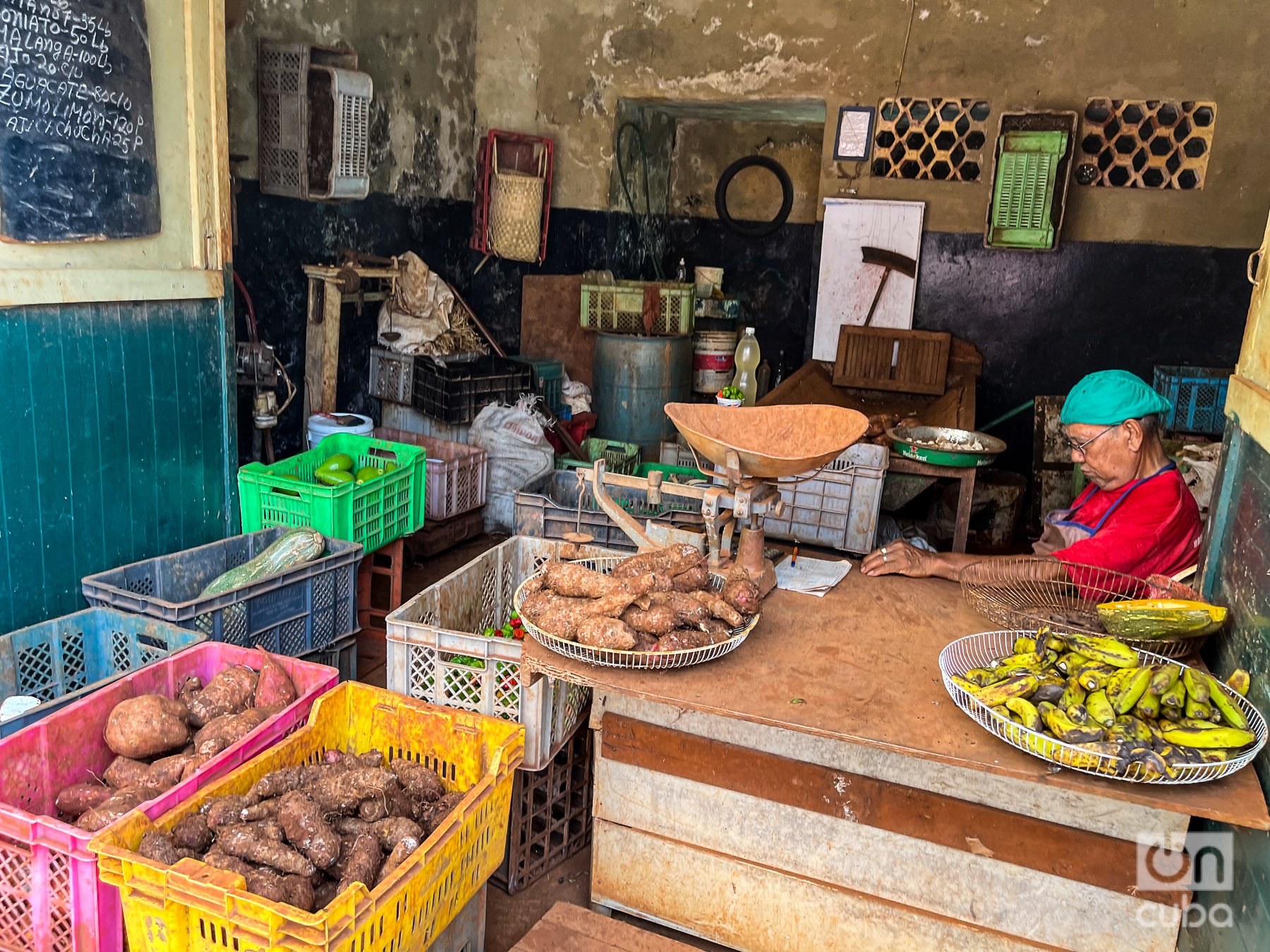Without a doubt, changes are needed in Cuba, although some have been made. It is not for lack of changes that our economy is going the way it is and that a relevant part of our population decides day after day to emigrate. It happens, in my opinion, that all these changes, taken together, have left the roots of the problems intact.
At least in economics, it seems that the main elements that it is in our hands to transform remain almost in the same place. There is an external context in which we practically cannot influence, but neither can we undervalue, ignore or refuse to reverse it. And yes, I speak first of that kind of spiderweb that is blockade 4.0, whose annual cost is more than four times what it cost annually between 1962 and 1989.
If we listed the changes from the 1990s until now we would be surprised at how many there have been, and how they crowd together. But unlike the sorrows of that memorable song, in economics, they do kill us.
We are headed for new changes, they have been announced a few days before Christmas Eve, in my opinion, not at the best time, nor in the best way.
Since then, much has been said about the announcements. It has been insisted that they will be carried out when the conditions are created, but what are those conditions?
Unfortunately, more than a month and a half later, the program that will implement these changes is not yet public and this, logically, opens spaces for all types of speculation. For now, today its effect on the informal exchange rate is verifiable, which has reached 300 CUP per one USD.

I would like, at the risk of repeating myself, to return to five aspects that seem relevant to me for the purposes of this program that we are all waiting for.
- The adjustment of the Cuban economy, understood as the drastic reduction of expenses, and the resizing of the state apparatus and the state enterprise system, is necessary and constitutes a condition without which the efforts to put the national economy on track will not bear fruit. Postponing this decision will entail more costs than benefits in the political order. Accompanying this adjustment with measures that allow these costs to be distributed is not an option but a necessity.
- Attempt to reduce the fiscal deficit, one of the main factors that influence the growth of inflation and the devaluation of the CUP, by increasing tax and non-tax income via raising taxes and fees — the contribution for investment, for state enterprises — operates as a mechanism to extract wealth from those who produce it and is counterproductive. It is contradictory to the aspiration of economic growth and improved investment, and in that sense it is procyclical: it contributes to the growth of inflation via final prices and reduces real wages, and for that reason it is regressive. It seems counterintuitive that, having recognized it as one of the causes of inflation, the Cuban Parliament has accepted a budget with the highest deficit since the early 1990s.
- The correction of distortions in the monetary sphere forces us to get out of the situation of lack of definition that exists today. It does not seem economically healthy to prolong indefinitely the uncertainty generated by the coexistence of several currencies—CUP, MLC (freely convertible currency), USD and the creation of new means of payment (Classic Card).It is incongruent to maintain the discourse about the intention to reduce dollarization with the real fact of its expansion due to policies adopted by the authorities themselves that repeat that discourse.If, given the current conditions of our economy and the need for foreign currency, partial dollarization of the economy is inevitable, then it must be fully assumed in a functional scheme for the purpose of growth, just as was done in the nineties. The conditions must be created from the beginning to dispense with dollarization in the shortest possible term. In fact, it would be preferable to announce that deadline. If it is understood that the cost of partial dollarization is unacceptable, then eliminate it and assume the cost that this implies, but let’s align the national economy to the CUP. The worst is what is happening today, among other reasons, because it generates great uncertainty that severely affects the business environment.

- The reorganization of the enterprise system as a whole does not allow much more delay. Obviously, a part of this consolidation would be associated with the adoption of fiscal and monetary policies, as part of the institutional framework on which all enterprises depend and macroeconomic policies, which positively impact their microeconomic performance and make their results transparent in terms of efficiency and productivity.
But, at the same time, the state enterprise system needs to be resized. The year 2023 ended with 323 state enterprises in losses. A good part of them are concentrated in commerce and gastronomy activities subordinate to local governments, probably more than 20 %.
- In the economic situation that the country faces, keeping enterprises operating almost artificially that are not decisive for development and even less so for national security, does not seem to have any rationality and in fact moves away from the original ideas expressed in the Conceptualization of the Economic and Social Model. Others, condemned to make losses as part of social policy, will have to wait for radical changes in subsidy policy.While the bipolar discourse on the non-state sector and especially on SMEs, promotes the non-use of the sector itself, discourages the growth of private national investment, caution in linking with the state enterprise sector and, at the same time, discourages the displacement of a part of these enterprises towards more complex productive activities.This is inconsistent with the official statistics of the non-state business sector, which, despite the restrictions that still exist, contributes 15 % of the GDP, employs more than 30% of the workforce and contributes 18% of the tax revenue.
The need for this adjustment program to incorporate policies that promote structural change is not a recent issue. It is at the very origins of this long process of reforms. The incoherence between the constant “updating” of the strategic sectors and the country’s investment policy is a fact.

While the people suffer from a prolonged deficit of goods and according to official data, the food segment leads the growth in prices, negatively impacting the quality of life of citizens, the allocation of investment resources to the sectors that could contribute to reducing this deficit, it has been more than insufficient in the last six years.
Tourism, a sector that was considered a key factor in the recovery and which concentrated more than 30% of the investment in these six years, has been far from expectations, not only in terms of tourist arrivals, occupancy and income, but also in its weak multiplier effect on the rest of the national economy. Monetary distortion, different exchange rates and expense regulations imposed on hotels are part of the causes of this low multiplier effect.
Without a doubt everything is tremendously complex. The delays and back-and-forth have caused us to lose valuable time. We have once again reached an election year in the United States, but in worse economic conditions than the previous time.
As almost always, the elections in that country are important for Cuba. Perhaps like never before in previous processes, this time my certainty that whoever the elected President is, and whatever his campaign program, the decisions on policy towards Cuba will depend on the balance of interests that both candidates have to make is even further reinforced. Cuba is physically very close to the United States but at the same time too far from the real interests of the U.S. administrations. We can do little to change that reality. So, we can only make the changes that are within our power.
We are left to make full use of two of the most important qualities of homo sapiens: that of anticipating the future and that of adapting even in extremely hostile environments.
Because homo sapiens are at the top of the chain of living beings not because we have more teeth than a white shark or because our fangs are bigger than those of the “king of the jungle.” The success of sapiens has been their incredible ability to adapt to external conditions. Let’s get rid of everything that does not allow us to fully use those skills.










